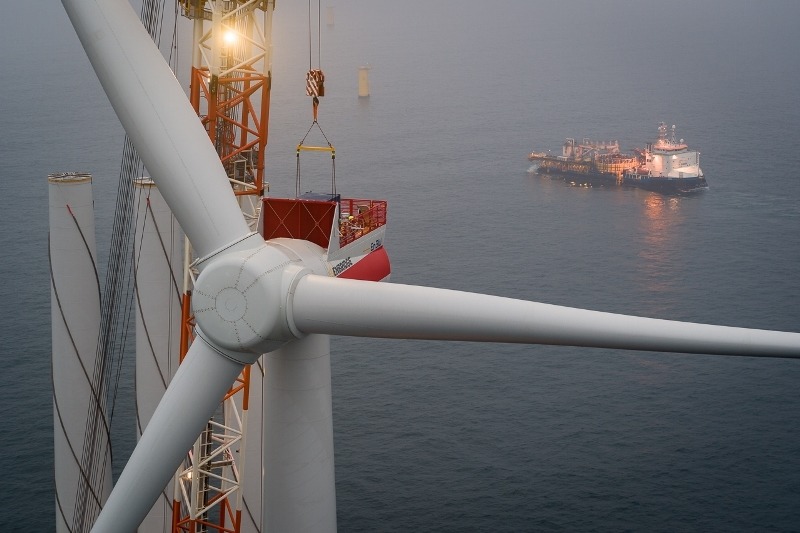The International Renewable Energy Agency has revised its forecast for the cost of curbing global warming due to the falling price of renewables

Building wind and solar farms has become cheaper in recent years (Credit: Ulrich Wirrwa/ EnBW)
Curbing global warming as per the targets set out by 2015’s Paris Agreement will be $10tn (£7.6tn) cheaper courtesy of the rapidly plummeting price of renewables, according to the International Renewable Energy Agency (IRENA).
The Abu Dhabi-based group has revised its original estimate for the price of reaching global climate targets for 2050 from $125tn (£96tn) last year to $115tn (£88tn) today, attributing the significant dip to the ever-falling costs associated with building wind and solar farms.
Francesco La Camera, director-general at IRENA, said: “Renewable energy is the most effective and readily-available solution for reversing the trend of rising CO2 emissions.
“A combination of renewable energy with a deeper electrification can achieve 75% of the energy-related emissions reduction needed.
“The global energy transformation goes beyond a transformation of the energy sector. It is a transformation of our economies and societies,” he said.
Electrification will be key to meeting 2050 climate goals
IRENA has also stressed the importance of electrification as a key part of reaching the targets set out by the Paris Agreement.
The group claimed if electricity accounted for 50% of energy use by 2050, up from 20% currently, global climate goals would be achievable.
It also argued the energy transition offers a considerable financial incentive, predicting that for every $1 (76p) spent, the return would be roughly between $3 (£2.30) and $7 (£5.36), making for an investment payoff of up to $160tn (£123tn) over the next three decades.
“Electrification is emerging as a key solution for reducing emissions but only if paired with clean electricity, which increasingly can be sourced at the lowest cost from renewable energy,” said Mr La Camera.
“The share of electricity in total energy use must increase to almost 50% by 2050, up from 20% today.
“Renewables would then make up two-thirds of energy consumption and 86% of power generation.
“Renewable electricity paired with deep electrification could reduce CO2 emissions by 60%, representing the largest share of the reductions necessary in the energy sector.”
